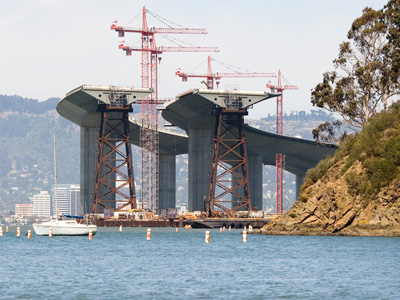Is Blocking Development More Harmful Than Helpful?

Business interests have long complained that California’s onerous rules and lengthy permit processes make it difficult, and sometimes impossible, to build or redevelop. Nowhere is this truer than San Francisco where anyone can file to block a project based on its environmental impact. One public policy group says filing challenges is a “sporting pastime” for us. But is the ease at which this can be done helpful to the long-term good of a city?
The same process happens with big energy projects. Any proposed project will be reviewed and perhaps challenged by numerous local, regional, state, and federal agencies as well as by advocacy organizations. Just passing all the regulatory hurdles, which entail multiple environmental impact statements, can take years. All it takes is one determined deep-pocket opponent, who can still block the process with a lawsuit.
Big energy projects in California have been abandoned because the process took too long. At the same time, California is also mandating that 33% of its power be renewable by 2020. These two goals of 1) deep and careful oversight (some might call it ‘onerous’) of development and 2) fast creation of renewable energy projects, are incompatible. California will not have 33% renewable energy by 2020 if projects can be blocked for years by NIMBYs.
Certainly, NIMBYs (Not In My Backyard) can raise valid issues and not all projects should be given the green light. But the regulatory climate in California appears to greatly favor NIMBYs and oppose development. It should come as no surprise that some businesses, including Silicon Valley juggernauts, are choosing to locate new offices and manufacturing facilities out-of-state where they can simply get built faster and easier. Nevada, Utah, and Arizona are all more than happy to help them do so and by doing so, attract business to their states.
It’s not just big projects that get blocked. Home remodeling plans in San Francisco can take years to be approved and can cost the combatants tens, if not hundreds of thousands in legal fees. For example, a private school in The City By The Bay wanted to demolish an old buildingin order to build a bigger, better one. Challenges filed by a local group plus the lengthy environmental review process delayed it almost three years, slowing their plans and costing them substantial sums of money.
Perhaps a better idea would be to say that challenges to a project can only be filed by those with a demonstrable interest in the outcome and only occur, say, once or twice during the process rather than endlessly. These provisions would allow the review process to still be comprehensive but to happen much faster.



